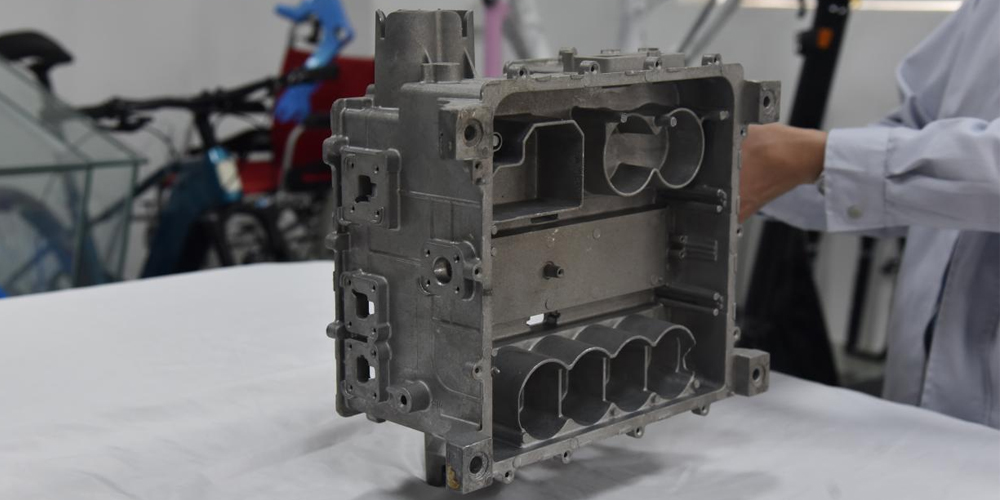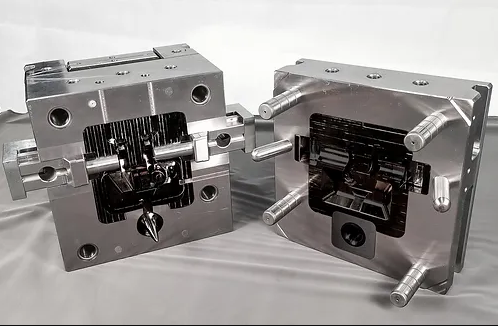Squeeze casting is a metal forming technique that allows the production of high-performance, complex-shaped metal parts with a fine microstructure and improved mechanical properties. This process involves the application of high pressure to the molten metal during solidification, which results in a more uniform and dense material that exhibits superior strength, toughness, and wear resistance.
The squeeze casting process typically involves the following steps:
1. Preparation of the mold: The mold is usually made of steel or other materials and is designed to produce the desired shape of the metal part.
2. Melting of the metal: The metal is melted in a furnace and heated to a specific temperature.
3. Pouring of the metal: The molten metal is poured into the mold through a gating system.
4. Application of pressure: Once the metal has partially solidified, pressure is applied to the mold cavity to compress the metal and eliminate porosity.
5. Cooling of the metal: The metal is allowed to cool and solidify completely.
The advantages of squeeze casting over other metal forming techniques such as forging, die casting, and investment casting are numerous. Firstly, squeeze casting allows for the production of complex-shaped parts with a fine and uniform microstructure that exhibits superior mechanical properties such as high strength, toughness, and wear resistance. Secondly, this process allows for the use of a wider range of materials including aluminum, magnesium, copper, and zinc alloys. Thirdly, the process is relatively fast and cost-effective, making it suitable for high-volume production.
In addition to these advantages, squeeze casting also offers the following benefits:
1. Improved dimensional accuracy: The high-pressure application during solidification ensures that the final product has accurate dimensions and tolerances.
2. Reduced porosity: The pressure applied during solidification eliminates porosity and results in a more uniform and dense material.
3. Reduced post-processing: The fine microstructure and improved mechanical properties of the final product eliminate the need for extensive post-processing, reducing production time and costs.
4. Increased design flexibility: The ability to produce complex-shaped parts with a high degree of accuracy and precision allows for greater design flexibility and innovation.
However, like any manufacturing process, squeeze casting also has some limitations and challenges. One of the main challenges is the difficulty in controlling the pressure and temperature during the process, which can affect the final product quality. In addition, the process is not suitable for producing very large parts or parts with thin walls.

Despite these challenges, squeeze casting remains a popular and effective metal forming technique, particularly in the automotive, aerospace, and defense industries. Its ability to produce high-performance, complex-shaped parts with improved mechanical properties has made it an attractive option for manufacturers seeking to improve the performance and durability of their products.
In conclusion, squeeze casting is a high-performance metal forming technique that offers numerous advantages over other methods. Its ability to produce complex-shaped parts with a fine and uniform microstructure, improved mechanical properties, and cost-effectiveness has made it a popular choice for manufacturers seeking to improve the performance and durability of their products. While the process has some limitations and challenges, its benefits make it a valuable addition to the metal forming industry.
-

- Factory Custom China Bmx Cycles Road Sport Kids Bicycle 12 16 18 20 Inches Cycle Mtb For Kids 6-10 Year
-

- Magnesium-alumiiniseoksesta valmistettu lasten pyörä 3-8 vuotta vanha halvalla kuumalla 14 tuuman lasten pyörä FOREVER tukkumyynti 2022
-

- CNC machining auto dashboard bracket
-

- Popular Children’s Sports Bicycle High Quality Children’s Balance Bike Children’s Bicycle
-

- Integroitu 3-puolainen MTB-pyörä CNC-työstyksellä ja pintakäsittelyllä
-

- Magnesium alloy thixomolding components

 0086-750-5616188
0086-750-5616188 +86 13392089688
+86 13392089688 sales@zhongmei-tech.com
sales@zhongmei-tech.com







